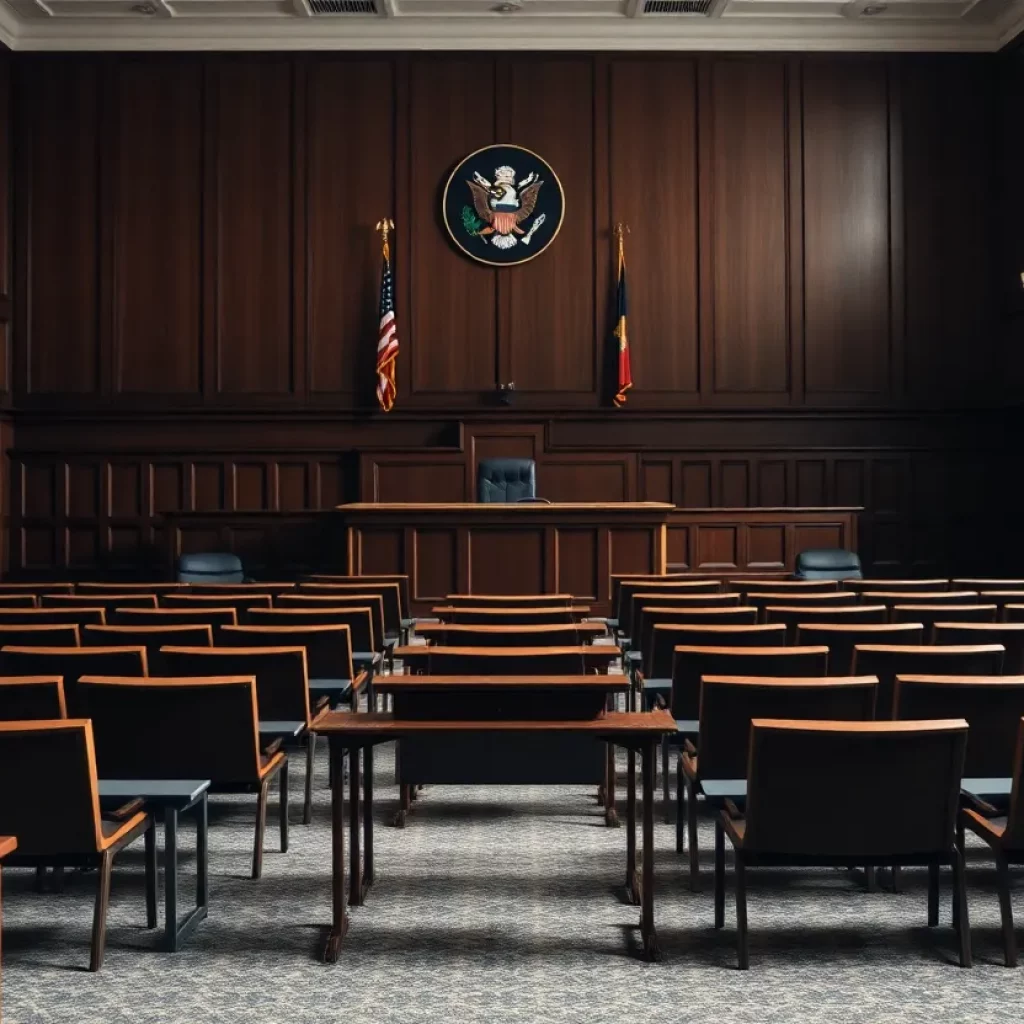News Summary
In a significant ruling, a Texas federal judge has ordered the Trump administration to ensure that a deported Venezuelan man, Widmer Josneyder Agelviz Sanguino, can communicate with his legal team. This decision highlights the ongoing legal battles over deportations under the Alien Enemies Act, raising concerns about due process and the treatment of refugees who entered the U.S. through legal means. Advocates for immigrant rights are intensifying their calls for reform as the implications of this case resonate throughout the system.
Texas Judge Orders Government to Facilitate Attorney Contact for Deported Venezuelan
A federal judge in Texas has mandated that the Trump administration ensure contact is established between a deported Venezuelan man and his legal team, stirring up ongoing legal battles over the controversial use of the Alien Enemies Act. This ruling comes as a lifeline to Widmer Josneyder Agelviz Sanguino, a 24-year-old who has found himself in a precarious situation after his unforeseen deportation to El Salvador.
Immediate Action Required
Judge Keith P. Ellison has directed the federal government to confirm Agelviz’s whereabouts and restore his ability to communicate with his lawyers by Wednesday afternoon. This development raises serious questions about the legal processes involved when individuals are deported, especially given that Agelviz was detained upon entering the United States under the refugee resettlement program.
Unjust Deportations Amidst Legal Chaos
Agelviz’s situation underscores the alarming trend where individuals, many with no criminal records, are being deported without proper court hearings. His mother, Lisbeth Carolina Sanguino, asserts that her son is not a gang member despite having a tattoo linked to the notorious Venezuelan gang Tren de Aragua. Agelviz’s tattoos, as described by his mother, symbolize personal memories rather than gang affiliations, complicating the narrative surrounding his deportation.
Advocates for immigrant rights have highlighted a disturbing pattern: most of the recently deported men, like Agelviz, had entered the U.S. through legal channels and had no criminal backgrounds. The refugee resettlement program involves thorough vetting to prevent threats, reinforcing that these individuals had been scrutinized before receiving status. However, the Trump administration has recently moved to strip protections from many Venezuelans, exacerbating concerns over a lack of due process.
Supermax Prison and Human Rights Concerns
Upon deportation, Agelviz was sent to the Terrorism Confinement Center (CECOT), notorious for its human rights abuses and offering little to no contact with the outside world. This raises alarm bells about the U.S. government’s compliance with international human rights obligations, along with increasing scrutiny over its treatment of refugees. Legal challenges are gaining momentum as advocates for these deported individuals seek to expose the flawed mechanisms that resulted in such drastic actions.
Political Implications and Legal Ramifications
The backdrop for Agelviz’s case involves broader immigration policy under the Trump administration, which has come under fire for its aggressive stance on deportations. A recent decision by the U.S. Supreme Court allowed the administration to revoke temporary deportation protections for up to 350,000 Venezuelans, thereby facilitating their potential deportation. Critics have labeled this move as unprecedented and indicative of a racially biased agenda against certain ethnic groups.
As the Department of Homeland Security continues to grapple with litigation efforts challenging the legality of the Temporary Protected Status (TPS) revocation, advocates argue that the fundamental purpose of TPS is to provide refuge to those fleeing dire conditions, such as civil unrest and natural disasters, exemplified by the situation in Venezuela.
The Ongoing Struggle for Justice
The legal implications of these policies are vast, setting the stage for heightened tensions between advocates for immigrant rights and the federal government. The current litigation that questions the constitutionality of TPS revocation adds another layer of complexity to this evolving narrative. As the Trump administration faces continued scrutiny, the legal landscape surrounding immigration and refugee status remains fraught with contention and uncertainty.
Ultimately, the fate of individuals like Agelviz rests in a precarious balance, entrusting their future to a legal system that is being rigorously tested amidst a backdrop of political unrest. As the deadline for the federal government approaches, the outcome of this case promises to have significant implications on the rights of refugees and immigrants across the nation.
Deeper Dive: News & Info About This Topic
HERE Resources
Human Rights Lawyer Arrested in El Salvador Sparks Outrage
Lawyer Raises Concerns Over Deportation of U.S. Citizen Children
Justice Department Fires Immigration Lawyer Amid Controversy
Lawyer Under Fire as Controversial Deportation Case Unfolds
Immigration Lawyer Under Fire for Challenging Deportation Case
Lawyer Highlights Troubling Deportation Case Under Trump Administration
Controversial Deportation of Violent Criminals from the US to El Salvador
US Appeals Court Judge Questions Venezuelan Deportations
Lawyer Challenges Trump Administration’s Deportation of Venezuelans
Additional Resources
- CNN
- Wikipedia: Temporary Protected Status
- Newsweek
- Google Search: Trump administration revoking TPS
- Reuters
- Google Scholar: Temporary Protected Status Venezuela
- Encyclopedia Britannica: Temporary Protection Status
- Google News: Venezuelan immigration policy
Author: STAFF HERE CHARLESTON
The CHARLESTON STAFF WRITER represents the experienced team at HEREcharleston.com, your go-to source for actionable local news and information in Charleston, Charleston County, and beyond. Specializing in "news you can use," we cover essential topics like product reviews for personal and business needs, local business directories, politics, real estate trends, neighborhood insights, and state news affecting the area—with deep expertise drawn from years of dedicated reporting and strong community input, including local press releases and business updates. We deliver top reporting on high-value events such as the Spoleto Festival USA, Charleston Wine + Food Festival, and the MOJA Festival. Our coverage extends to key organizations like the Charleston Metro Chamber of Commerce and the Charleston Museum, plus leading businesses in tourism and maritime industries that power the local economy such as South Carolina Ports Authority and the Charleston Visitor Center. As part of the broader HERE network, including HEREaiken.com, HEREbeaufort.com, HEREchapin.com, HEREcharleston.com, HEREclinton.com, HEREcolumbia.com, HEREgeorgetown.com, HEREgreenwood.com, HEREgreenville.com, HEREhiltonhead.com, HEREirmo.com, HEREmyrtlebeach.com, HEREnewberry.com, HERErockhill.com, HEREspartanburg.com, HEREaustin.com, HEREcollegestation.com, HEREdallas.com, HEREhouston.com, and HEREsanantonio.com, we provide comprehensive, credible insights into South Carolina's dynamic landscape.










